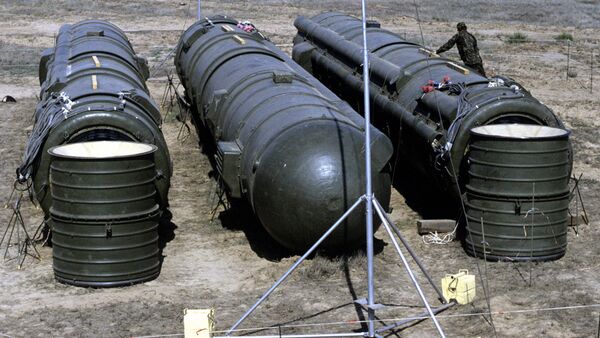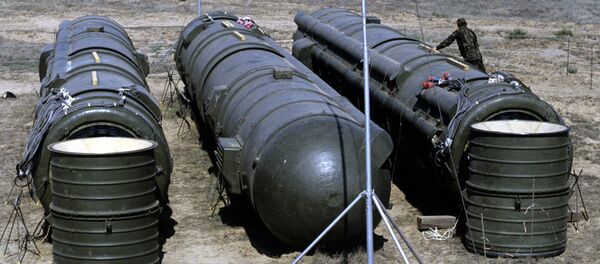WASHINGTON (Sputnik) — On Wednesday, Politico reported that the US Congress is preparing several defense bills, the provisions of which would require the Department of Defense to violate the 1987 treaty through development of medium-range missiles banned under the accord. The Kremlin commented on the reports by saying that Moscow remans committed to its INF Treaty obligations.
"Regardless of whether Russia violated the INF Treaty or whether the US legislation will lead to further impairment of the nonproliferation regime, any further developments of nuclear weapons exemplifies a universal principle: the more nuclear weapons are perfected the less security is obtained," Granoff said on Friday. "Nuclear weapons ventures bring irrational competition rather than stability."
"We need to identify our shared interests and begin cooperating on protecting the climate, ending poverty, and ensuring sustainable global economic development," Granoff said.
Granoff is also a senior advisor to the Nobel Peace Laureate Summit and served as Vice President and United Nations Representative of the Lawyer’s Alliance for World Security.
The United States announced an initiative on revising the INF Treaty for the first time in February in order to stop alleged Russian violations of the agreement. The Intermediate-Range Forces Treaty Preservation Act was proposed by Republican Senators Tom Cotton, Ron Johnson and Marco Rubio and supported by Republican members of the House of Representatives Ted Poe and Mike Rogers, who introduced the bill to the lower chamber.
Russian Foreign Minister Sergei Lavrov has repeatedly said that the Russian leadership had reaffirmed its commitment to the INF Treaty, and that Moscow has never violated the agreement. The minister pointed out that Washington had not provided any data that can be verified, adding that Russia had serious questions concerning US compliance with the INF Treaty.
The INF Treaty, signed in 1987, significantly reduced the arsenal of non-strategic missiles available to the United States and Russia by prohibiting all nuclear and conventional missiles and their launchers with range between 310 and 3,420 miles. The United States and Russia have repeatedly accused each other of violating the INF treaty.



